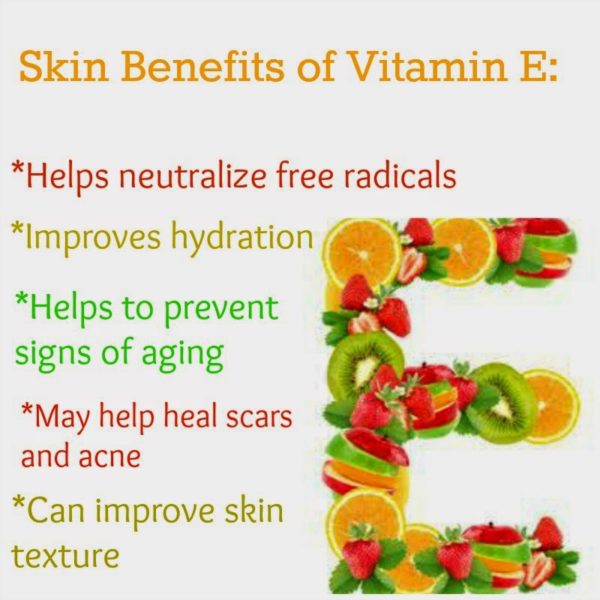
Benefits of consuming more vitamin E-rich foods can include treating and preventing diseases of the heart and blood vessels, such as chest pains, high blood pressure, and blocked or hardened arteries. Vitamin E is found only in plant foods, including certain oils, nuts, grains, fruits and wheat germ. It's also available as a supplement.
So let's find out how you can get all these great vitamin E benefits, along with the best vitamin E foods, supplements and the signs of a vitamin E deficiency.
What are the top vitamin E benefits? Supplementing and consuming vitamin E-rich foods has been found to be associated with some of the following health benefits:
1. Balances Cholesterol
Cholesterol is a naturally occurring substance made by the liver and required by the body for the proper function of your cells, nerves and hormones. When cholesterol levels are in their natural state, they're balanced, normal and healthy. When cholesterol oxidizes, it becomes dangerous. Studies have shown that certain isomers of vitamin E serve as a protective antioxidant that fights cholesterol oxidation. (1) This is because they can fight free radical damage in the body, which leads to cholesterol oxidation.
Tocotrienol isomers of vitamin E have three double bonds that positively impact cardiovascular health due to their ability to reduce activity of an enzyme that controls cholesterol production/synthesis (called HMG-CoA reductase). Tocotrienol isomers can also prevent cell adhesion and therefore slow down progression of atherosclerosis, or hardening/thickening of the arteries. It's important to note synthetic vitamin E doesn't seem to have the same benefits of natural forms. Too much alpha-tocopherol can actually interfere with the cholesterol-lowering action of delta and gamma-tocotrienols, which are the two most bioactive tocotrienols and the types linked to cardioprotective activities.
2. Fights Free Radicals and Prevents Disease Development
Free radicals fight and break down the healthy cells in your body, and this can lead to heart disease and cancer. These molecules form naturally in your body, and they can cause severe damage when they accelerate or oxidize. Certain isomers of vitamin E have powerful antioxidant abilities that have the power to reduce free radical damage, fight inflammation, and therefore help naturally slow aging in your cells and fight off health issues like heart disease. (2)
Studies have shown that these can significantly increase immunity, therefore helping prevent both common illnesses and serious conditions from forming. (3) Recent research suggests that for immune enhancement and antioxidant effects, the isomers alpha-tocotrienol, gamma-tocotrienol and to a lesser degree delta-tocotrienol seem to be the most effective.
3. Repairs Damaged Skin
Vitamin E benefits skin by strengthening the capillary walls and improving moisture and elasticity, acting as a natural anti-aging nutrient within your body. Studies have shown that vitamin E reduces inflammation both within your body and on your skin, helping maintain healthy, youthful skin. (4) These antioxidant properties are also helpful when you're exposed to cigarette smoke or ultraviolet rays from sunlight, protecting against skin cancer.
Taking vitamin E with vitamin C fights skin inflammation after exposure to UV radiation and can also be useful in decreasing signs of acne and eczema. Vitamin E also helps the healing process in the skin. It's absorbed by the epidermis layer of the skin and can be used to treat sunburn, which is one of the leading causes of skin cancer, among other factors. Because it speeds up cell regeneration, it can be used to treat scars, acne and wrinkles; this makes your skin look healthier and younger.
4. Thickens Hair
Because vitamin E is a powerful antioxidant, it helps decrease environmental damage to your hair. It can also promote circulation to the scalp. Vitamin E oil can retain the natural moisture in your skin, which helps your scalp from becoming dry and flakey. This oil also makes your hair look healthier and fresher. You can apply a few drops of vitamin E oil on your hair, especially if it looks dry and dull.
5. Balances Hormones
Vitamin E can play a crucial role in balancing your endocrine and nervous systems, naturally working to balance hormones naturally. (5) Symptoms of a hormonal imbalance may include PMS, weight gain, allergies, urinary tract infections, changes in the skin, anxiety and fatigue. By keeping your hormones in balance, you will find it easier to maintain a healthy weight, keep a regular menstrual cycle and find yourself
feeling more energetic.
6. Helps PMS Symptoms
Taking a vitamin E supplement two to three days before and two to three days after a menstrual period can reduce the cramping, anxiety and cravings and other PMS symptoms. Vitamin E can decrease pain severity and duration, and it can reduce menstrual blood loss. It does this by balancing your hormones naturally, and it helps keep your menstrual cycle regulated.
7. Improves Vision
Vitamin E may help decrease the risk of age-related macular degeneration, which is a common cause of blindness. Keep in mind, in order for vitamin E to be effective for vision, it must also be consumed with adequate intakes of vitamin C, beta-carotene and zinc. It's also been found that taking high doses of vitamin E and vitamin A daily seems to improve healing and vision in people undergoing laser eye surgery.
8. Helps People with Alzheimer's Disease
Research shows that the anti-inflammatory activity of tocotrienols contribute to their protection against Alzheimer's disease. Vitamin E may slow down the worsening of memory loss and functional decline in people with moderately severe Alzheimer's disease or other neurodegenerative disorders. It may also delay the loss of independence and the need for a caregiver or assistance. Vitamin E, taken with vitamin C, can also decrease the risk of developing several forms of dementia.(6)
9. May Lower Cancer Risk and Improve Effects of Medical Treatments
Vitamin E is sometimes used to lessen the harmful effects of medical treatments, such as radiation and dialysis for treating cancer. This is because it's a powerful antioxidant that fights off free radicals in the body. It's also used to reduce unwanted side effects of drugs that may cause hair loss or lung damage.
Certain isomers of vitamin E have also been tied to cancer protection. Several animal studies have found evidence of suppression of tumor growth using oral doses of tocotrienols. While there's more to learn about how exactly this works, several mechanisms of action are thought to be by tocotrienols, inducing cancer cell death, turning off genes tied to cancer and inhibiting angiogenesis, or the abnormal growth of blood vessels inside a tumor. In animal studies, cancer-protective abilities have been demonstrated in cases of breast, prostate, hepatic and skin cancers.
10. Improves Physical Endurance and Muscle Strength
Vitamin E can be used to improve your physical endurance. It can increase your energy and reduce the level of oxidative stress on your muscles after you exercise. (7) Vitamin E can also improve your muscle strength. It eliminates fatigue by promoting blood circulation and can also strengthen your capillary walls and nourish your cells.
11. Important During Pregnancy for Growth and Development
Vitamin E is critical during pregnancy and for proper development in infants and children because it protects critical fatty acids and helps control inflammation. Some experts believe that the biggest need for vitamin E is during the 1,000-day window that begins at conception, since vitamin E impacts early stages of neurologic and brain development that can only happen during this one specific period. Because of this, it's recommended that pregnant women, nursing mothers and children up until the age of 2 take a natural, food-based supplement to make sure they're getting enough to prevent abnormalities.
Vitamin E Foods
Most people aren't aware that "vitamin E" is a collective description for eight compounds, four tocopherols and four tocotrienols. Getting enough vitamin E seems to be especially critical for the very young (fetuses or infants), the elderly, and women who are or may become pregnant. According to the USDA, the recommended daily allowance for collective vitamin E is 15 milligrams per day (or 22.5 IU) for adults. (8) I recommend consuming two to three of these vitamin E foods daily to meet your needs:
Sunflower Seeds: 1 cup - 33.41 milligrams (220 percent)
Almonds: 1 cup - 32.98 milligrams (218 percent)
Hazelnuts: 1 cup - 20.29 milligrams (133 percent)
Wheat Germ: 1 cup plain, uncooked - 18 milligrams (120 percent)
Mango: 1 whole raw - 3.02 milligrams (20 percent)
Avocado: One whole raw - 2.68 milligrams (18 percent)
Butternut Squash: 1 cup cooked and cubed squash - 2.64 milligrams (17 percent)
Broccoli: 1 cup cooked - 2.4 milligrams (12 percent)
Spinach: ½ cup cooked or about 2 cups uncooked - 1.9 milligrams (10 percent)
Kiwi: 1 medium - 1.1 milligrams (6 percent)
Tomato: 1 raw - 0.7 milligram (4 percent)
Watch Video




